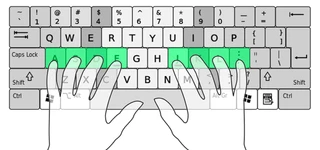6 Ways AI is Revolutionizing the Healthcare Ecosystem

AI has emerged as one of the significant techniques over the years and is transforming the healthcare ecosystem. And why not! It can augment human capabilities and help them perform tasks faster, cheaper and better.
Whether it’s about streamlining the diagnosis process or assisting healthcare providers and managing medical data, AI is disrupting the healthcare ecosystem completely. With AI applications becoming prominent in healthcare industry, delivering precise treatment is easier now.
List of Ways AI is Helping Healthcare Industry
1. AI Health Assistants
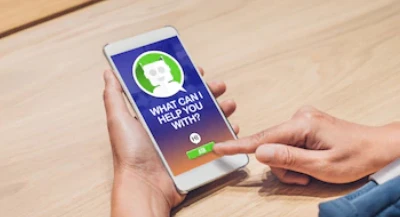
Artificial Intelligence is working significantly towards optimizing the clinical and outpatient processes. This has led to freed up time for doctors who can take in hand critical medical cases. The traditional process of patients visiting the doctor and getting prescriptions is disrupted by the advent of AI-powered mobile apps and chatbots.
Providing the basic healthcare facility is possible even without patients visiting the doctor. Chatbots can ask patients about their symptoms and provide a personalized experience by linking their symptoms with probable causes. A complex map of a patient’s condition is created, helping users get a personalized healthcare experience.
Suggested Read: Best AI Content Generator Tools for Content Marketers
Healthcare providers are driven towards creating a conversational visual interface where patients can reach out to them at any time and get emergency support. And, that’s not it! Healthcare providers can also use AI health assistants to keep in touch with patients and help them recover faster.
And then, there are virtual nursing assistants, which assist in following up with patients and assist them with faster recovery. Especially in areas where healthcare providers are in short supply, AI nurse assistants can be instrumental in monitoring the state of patients and answering their concerns.
2. Early Detection of Diseases

AI is acting as the most important tool in the healthcare industry for identifying critical at the initial stage. Baidu research recently announced about its deep learning algorithm that can outperform even trained pathologists in recognizing breast cancer metastasis. Mammograms are not quite effective in tracking cancer, and 1 in 2 women in the USA are identified with breast cancer falsely. As a relief, AI can translate mammograms 30 times faster and give accurate results.
Not just cancer, but AI can also be used to detect early stage heart diseases and provide right treatment at the right time. AI, in the integration with consumer wearables and medical wearable devices can identify heart diseases in patients and monitor them with the right treatment.
3. Quick Diagnosis & Treatment
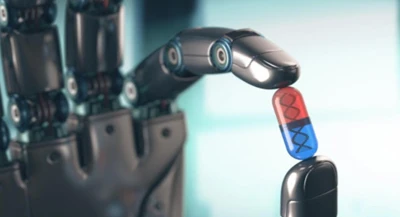
At the Institute of Medical Science in the University of Tokyo, artificial intelligence was successful in diagnosing a rare form of leukaemia in a woman in her 60s. And that too in just 10 minutes, when even specialists failed to make the right diagnosis. Similarly, AI is helping many other doctors to diagnose accurately and devise the right treatment.
Artificial intelligence can process an enormous amount of data without being interrupted, which is humanely impossible. Thus, enabling improvements in the medical front with increased diagnostic accuracy. AI-assisted diagnosis is important for healthcare providers to detect diseases early and support patients in their efforts to live a healthy lifestyle. Unlike human, AI algorithms don’t lose their edge while diagnosing several samples together and collecting useful patterns.
4. Research & Drug Creation
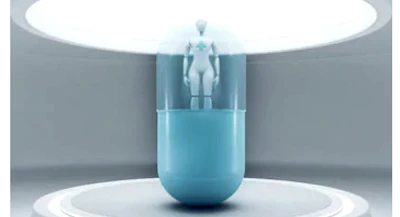
When Ebola disease posed a major threat to the health of people across the world, AI technology came as a saviour. AI not only helped in discovering the bat carriers of Ebola but also assisted in preventing the spread of this fatal disease by identifying the relative drug from existing data for the timely cure.
AI algorithm makes doctors more proficient in understanding epidemic disease trends and using the demographic data to monitor their spread among specific people. Accordingly, researchers and medical practitioners can work on the groups registering higher disease prevalence.
5. Workflow and Administrative Tasks
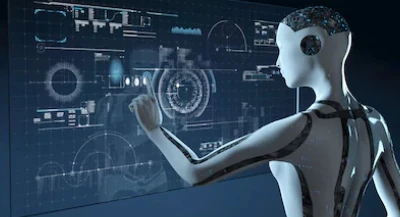
AI is also impacting the healthcare ecosystem by automating administrative tasks. Take for instance, voice-to-text-transcriptions that are helping doctors prescribe medications and write chart notes quickly. Also, AI can help healthcare providers mine big data and devise treatment plans for the personalized patient care.
One of the recent examples of the integration between healthcare providers and AI is that between Cleveland Clinic and IBM’s Watson. This integration is helping the clinic’s physicians in analysing thousands of medical papers and devising treatment strategies.
Wrapping Up
AI is becoming an integral part of the healthcare industry. The growth of healthcare AI will not just help in providing the quality patient care but also ensure financial relief for the people. Thus, with AI, the healthcare ecosystem is all set to rise and shine.
Kalpana’s tech writing journey began in 2017 with Techjockey, and she truly belongs here! If she was not a technical content writer, she would have been a coder. Technical writing, especially for business software, is her passion, and she enjoys every bit of it. From addressing the pain... Read more





















